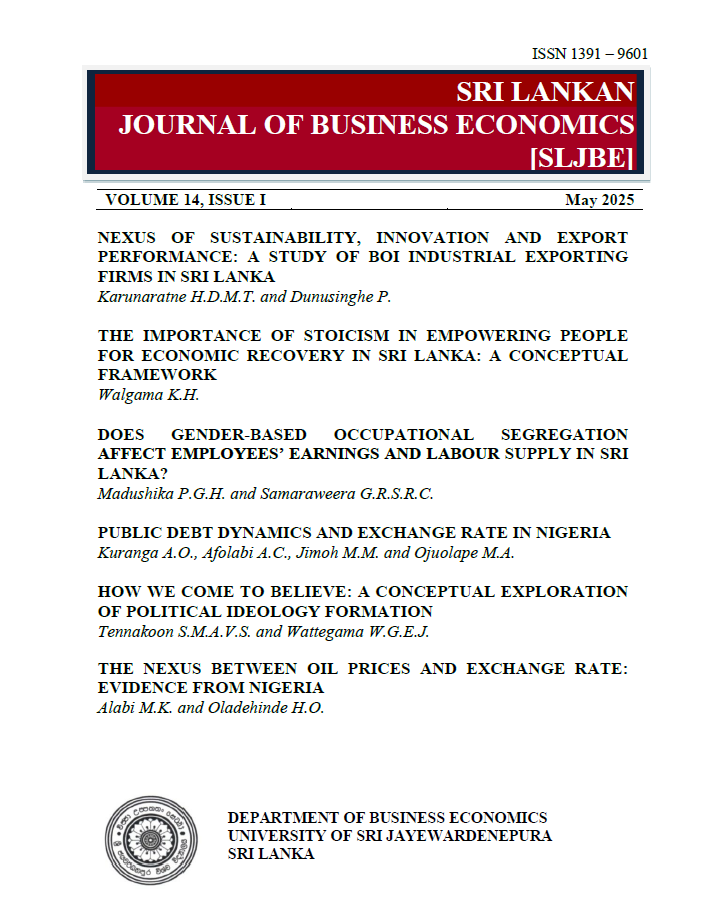HOW WE COME TO BELIEVE: A CONCEPTUAL EXPLORATION OF POLITICAL IDEOLOGY FORMATION
DOI:
https://doi.org/10.31357/sljbe.v14.8388Abstract
Political ideology is a complex concept, commonly defined as a set of beliefs and values that shape an individual's political views and opinions. The formation of political ideology is a critical area of study, offering insights into the evolving political landscape. Understanding the factors that influence an individual’s political ideology is, therefore, a key research concern. This study identifies a theoretical gap in comprehensively conceptualizing the multifaceted factors that contribute to ideological formation. To address this gap, a structured review was conducted with the aim of examining key influences such as personality traits, gender differences, personal economic status, media exposure, childhood experiences, and cultural values. The review also explores exogenous, mediating, and moderating factors that shape ideological development. A keyword-based search, subject and abstract screening, and full-text review were used to identify relevant academic literature. The review process followed a systematic approach adapted from Webster and Watson (2002), which emphasizes organizing existing knowledge to build conceptual clarity. The major contribution of this study is the development of a conceptual framework that explains how various factors interact in shaping political ideology. The findings aim to strengthen academic understanding of ideological formation and offer practical insights for policymakers seeking to foster informed and engaged citizenship.

